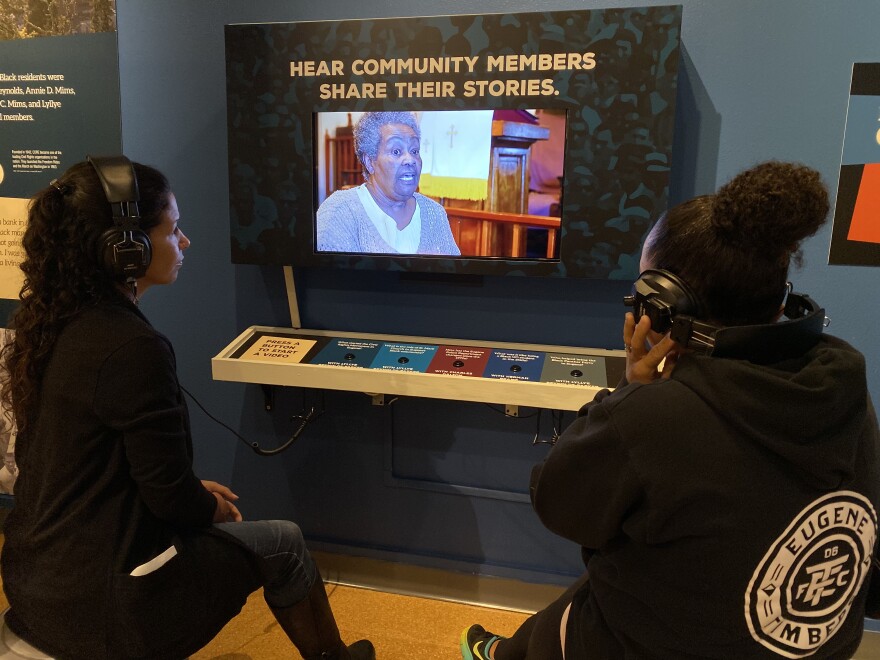In partnership with the Oregon Black Pioneers, the Museum of Natural and Cultural History at the University of Oregon has a new exhibit. It illustrates the inequality for African Americans in Eugene—history many people might not know.
After the first “Racing to Change” exhibit opened last year at the Oregon Historical Society in Portland, the Oregon Black Pioneers have curated the local exhibit, “Racing to Change: The Eugene Story.”
The exhibit includes limited time access to the original Oregon Constitution, which included black exclusion laws. Oregon Black Pioneers member Gwen Carr says rules like this started in 1844, before Oregon was even a state.
“Oregon has always been in a situation where, although it was a free state and slavery was not supposed to be here legally, they also had black exclusion laws which basically said blacks are not welcome—cannot live, cannot own property, and what have you—in the state of Oregon,” said Carr. “However, in spite of those laws, our research shows that there were blacks here in Oregon.”

The beginning of the exhibit details the achievements of early black settlers from the late 1890’s, despite the presence of exclusion laws. Among those featured is trolley driver Wiley Griffon, who was the first black person to work for the University of Oregon. The museum then shows the lifestyles and the prevalence of black culture and activism through the 1970’s.
Lisa MacGregor attended the opening to learn more about Eugene’s history. After moving to Oregon in the mid-1970’s at the age of nine, MacGregor says she’s shocked by what she learned.
“I thought Oregon was—and I’ve continued to think—Oregon is this cool, progressive place to live, but not very long ago we were voting whether or not to be a slave state,” said MacGregor. “It’s horrifying to me.”
Attendee Ceara Wilson says it’s important to have exhibits like these.
“Being interracial, but identifying as black, I think it’s important to have something like this space on campus highlighted in addition to the Black Cultural Center next door, so that students of color can have a place where they feel safe and where the white community can also come and be educated on the black experience,” said Wilson.

Exhibit and public programs director Ann Craig says she hopes the exhibit will help people find a way to take action against the racism still happening today.
“Racing to Change: The Eugene Story” will be on display at the UO Museum of Natural and Cultural History until May 17, 2020. The Oregon Constitution will be on display through November 14.




